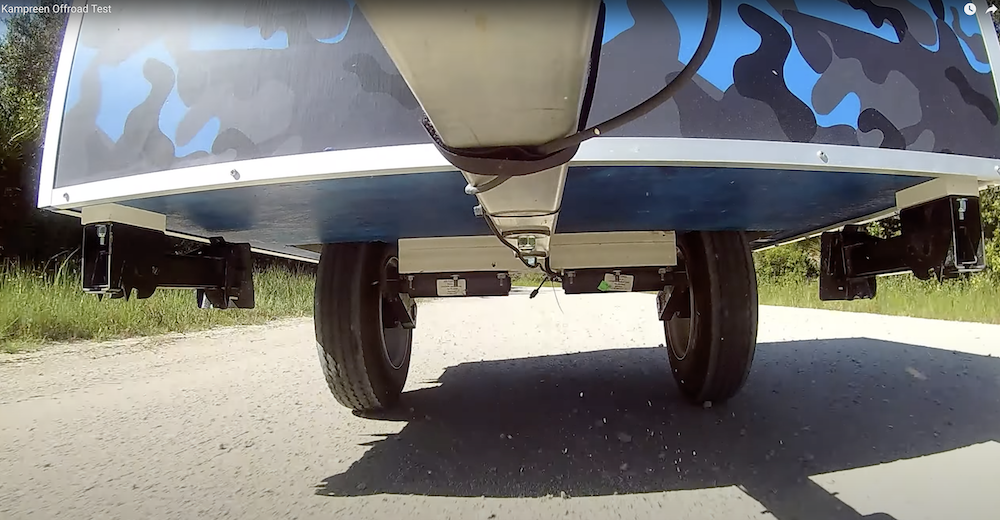Offroad Camper Towing Test

The places I like to camp are better suited to an offroad camper than a pavement-only trailer. It’s gotta be remote, it’s gotta be quiet, it’s gotta be the hell away from leaf blowers, air conditioning units, pool heaters, pool pumps, trucks with train horns, bikes with straight pipes, cars with no pipes, construction, air traffic, interstate traffic, air boats, cigarette boats, jet skis and all the other relentless sounds of southwest Florida. Damn its loud down here. But I guess the demographics are skewed in such a way that I’m the only one who notices. Most everyone else is hard of hearing. (Fact: The Fort Myers Costco hearing aid center does more “volume” than any other location worldwide.)
Sorry. That rant had nothing to do with motorcycle campers, except to emphasize the fact that an unstated goal of this camper build was to develop something that would feel surefooted on gravel roads as well as pavement.
I mounted an inexpensive action camera to the underside of the trailer tongue of this camper to see how it was responding to travel at speed on a rough surface. As dirt roads go, this one through the Okaloachoochee Slough is typical of the area. On a two-wheeler I can comfortably run between 30 and 40 mph with the camper.
You can see in this video that the rear tire of the bike is kicking back a lot of gravel bits onto the front of the camper. Over time that will be a good test of the durability of that vinyl wrap.
So how does it stand up as an offroad camper candidate? As of this writing, out of all the miles I’ve towed the camper, I have about 65 miles on roads like this. So far, everything seems to be holding up well.
Questions?
For more information about this camper you can contact me through this page.
My business is selling motorcycle campers and trailers and the gear you need to tow them with a motorcycle or trike. I run two sites: Open Road Outfitters and US Hitch.